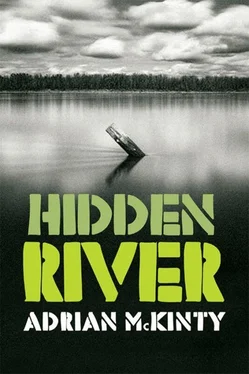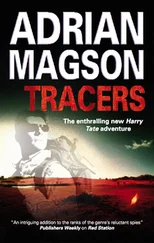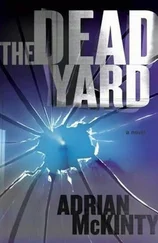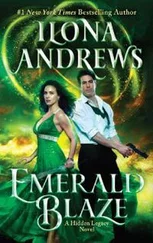“One twenty.”
“One hundred and twenty, that’s not bad, is it?”
“Yeah,” I say, and I’m doing the sums in my head. One hundred dollars is about sixty pounds, which isn’t bad for a couple of hours’ work. Not bad at all. Thinking about this cheers me up again. Abe comes out of the office with a clipboard and some fact sheets. He’s a kid my age, fat, ginger bap, wearing a Sex Pistols T-shirt. I talked to him briefly earlier. Seemed ok.
“Ok,” he says, “let’s get you started.”
Charles departs, casually swinging his key ring, Abe brings me into his office, sits me down.
“He told you everything?” Abe asks in a New York accent.
“Yeah, although he was a bit vague and mysterious about personnel problems. Some kind of tragedy?”
“Oh, shit. Look, Alex, Charles wants us to draw a line under it, look to the future and all that, but I should tell you that we had two terrible things happen to us in the last month.”
“Oh, yeah?” I ask.
Abe tells me all about Victoria and Klimmer, explaining that they’ve caught one of the killers and are looking for the others. He tells me not to bring it up with anyone at CAW. He seems a bit upset, especially talking about Victoria, and I’m considering him an empathetic ally when he adds that one of the worst aspects of the whole thing is that now he can’t wear his Warren Zevon “Things to Do in Denver When You’re Dead” T-shirt around the office.
“Is there anything else before we get down to business?” Abe asks.
“Well, Charles said there’s going to be a film crew following him tonight,” I say.
“Yes, yes, there is, he tell you why?”
“No, he didn’t, said it was publicity.”
“Well, if he didn’t tell you, I can’t tell you,” Abe says.
“What’s the big secret?” I ask.
“We’re not supposed to discuss it, in fact, I’m not even supposed to know, so if you don’t mind I’d like to leave it there, ok?”
“Ok,” I say, not minding because Abe looks like the sort of guy who couldn’t keep a secret to save his life.
Abe pops the fridge, gives me a Coke, and explains the “rap.” Tonight we’re going to be asking people about the preservation of the old growth forests of North America and if this is an important issue to them. The rap has to be memorized. He does it for me a few times and I believe I’ve got it:
“Hi, my name is Alexander O’Neill, I’m from the Campaign for the American Wilderness, I’m in your neighborhood tonight campaigning to preserve our ancient forests, is this an issue that concerns you at all?”
If they say no, I’ve learned a set of answers, if they say yes, I’ve learned answers. It’s like a computer program.
“No, I’m too busy,” Abe says.
“Well, sir, this will only take one minute of your time, one minute to preserve our nation’s heritage,” I say.
“Good,” Abe says.
Abe role-plays me through a set of situations. A woman with a baby, a man on a phone, an angry man, etc. Always in every situation I am to be “closing the loop,” bringing the conversation back to the issue of preserving the old growth forests but allowing for logging in the managed forests, highlighting the shortsightedness of the Greenpeace policy of no development, explaining that logging companies plant more trees than they cut down, further explaining that Congress is choked by environmental pressure groups and that a voice for Wise Use, commonsense use of our natural resources is sadly lacking.
All the time he’s talking, I’m thinking about the Mulhollands. Charles — funny, nice, Robert cold but sympathetic, Mrs. Mulholland, Charles’s wife, the beautiful mirror of Victoria. A troika of evil? Hmmm. Maybe I was way off. Way, way off.
* * *
It’s six o’clock, we’re on a clogged highway heading south. We’re in a van. Over a dozen of us. All white, students, bubbly, irritating. No blacks, Asians, or Mexicans. Only one person I recognize from this morning’s set of interviews. Both of us new hires have been introduced to all the others. The others can’t be that veteran either, considering CAW only moved here a couple of weeks ago.
Charles is driving, and beside him in the front seat is Amber, twisting her hair into little ringlets, not being coy, just bored. Beside me in the back is Abe and another girl, who told me her name but I’ve already forgotten it. She’s young and skinny and looks like a student.
I don’t see the film crew and I wonder if both Charles and Abe were joking about that.
As we drive through the traffic, Abe keeps asking people to do tonight’s rap. He doesn’t ask me, which is good, because I’m still trying to remember it. That and all the facts and the angles. First question you’re supposed to ask is whether the issue of the forests concerns them. Second question (while you pretend to fill something in your clipboard) is their political affiliation. If they’re a Republican, you talk about waste, how the mining companies and timber manufacturers are going bankrupt; if they’re a Democrat, you talk about deforestation and why we have to cut down the tropical rain forests, because nutty environmentalists won’t let us use our own forests for managed growth. The tropical rain forests have a hoard of untapped medical potential. If a Democrat woman opens the door, you’re supposed to tell her about the breast cancer drugs they found in the Amazon. If it’s a man, you’re to talk about prostate cancer or heart disease. Whatever’s relevant to the person at the door. The most important thing of all, Charles tells us, while he’s driving, is always to be closing the loop.
Charles shifts lanes expertly and looks at us in the rearview mirror.
“Ok, folks, everyone’s favorite time, the getting-to-know-you questions,” Charles says.
Some people groan.
“Tonight we’ll do favorite superhero and why. Alex, Elena, you go first, of course, since you’ve just joined the family,” Charles says.
“Don’t make them go first, honey,” Amber says. “They should go last.”
“Ok, you’re right. Abe, you first,” Charles says.
“Uh, Spiderman,” Abe says, “because he’s an ordinary guy, lives in Queens, I visited his house, it’s a real address in Forest Hills, ’course Peter Parker doesn’t live there.”
“Ok, thank you, Abe. Favorite superhero, Michael,” Charles asks a tubby kid in sandals and brown T-shirt.
“Does the Bionic Man count?” Michael asks.
“Yes, of course, and why do you like him?” Charles asks.
“I don’t know, because he did cool stuff,” Michael says.
Charles goes around the van, getting everyone talking. By the time they get to me, the only superhero left is Batman. I give them my theory about the Batman TV show and U.S. presidents:
“The Penguin is obviously a caricature of FDR, there’s the accent, the cigarette holder, et cetera. The Riddler is Richard Nixon, the energy, all humped over. The Joker is Jack Kennedy, the big grin, weird accent—”
“Who’s Catwoman?” Mrs. Mulholland asks, suddenly interested.
“Jackie, sexy, dark-haired,” I say.
“She wasn’t sexy,” one of the kids says.
“She was back then,” Charles says, and gives me a grin. I can see that he’s thinking we made the right decision hiring this kid.
We finish the superheroes and Charles tells us that we have to remember the rap and be always closing the loop.
He makes us chant “Always be closing the loop,” and no one seems to think this is particularly embarrassing. Charles continues: “Remember, everyone, always be closing the loop, even if someone is arguing with you, always be closing the loop. Bring it back to the issue of how they can help and how they help is by joining the Campaign for the American Wilderness at fifty dollars a shot. If it’s too expensive, point out that that’s only a dollar a week and if they still don’t budge tell them we’ve a special reduced membership for thirty-five dollars a person, so they could join on their own, not at the family level, and still be doing their bit. Also, if it’s a flashy house, maybe a Mercedes in the drive, you can ask for a hundred-dollar membership or a life membership for five hundred dollars. You get one person to become a life member and you’ve made yourself a hundred and fifty dollars in one evening.”
Читать дальше










